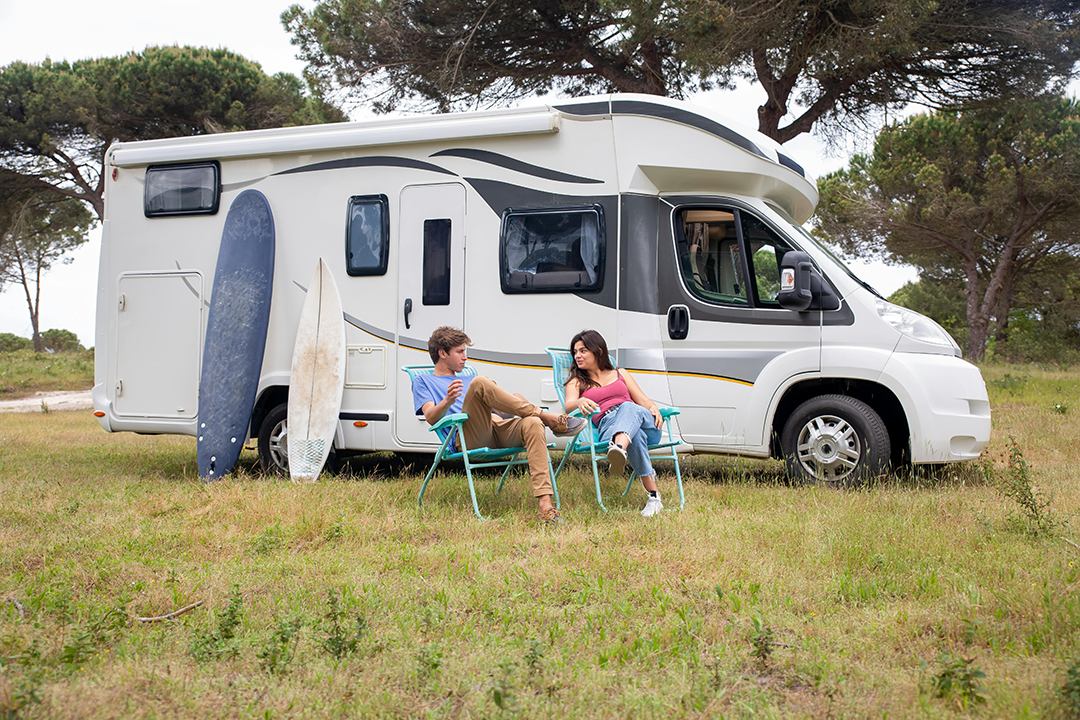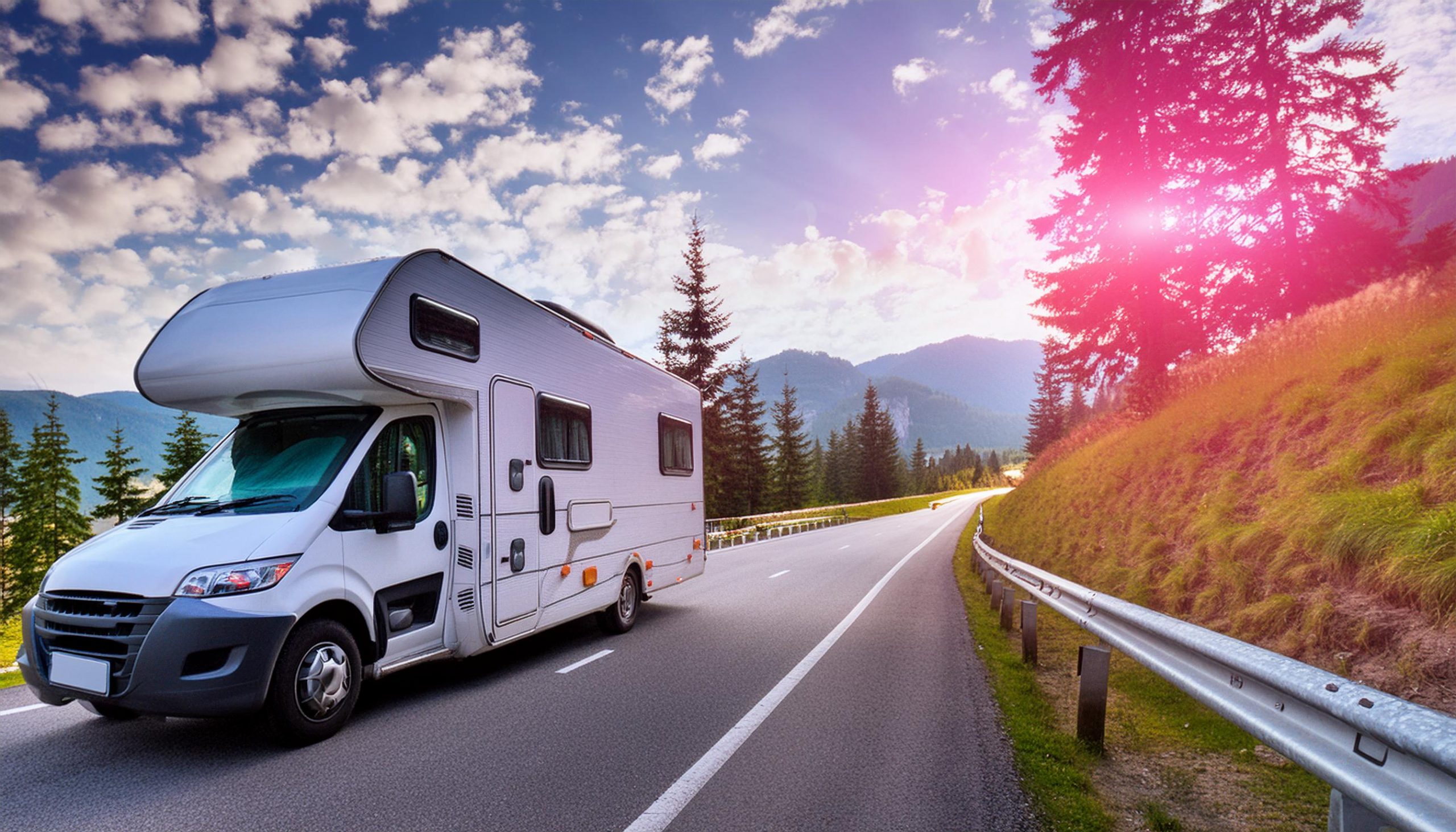How Long Can Your RV Generator Run?

Understanding how long your RV generator can run is vital for effective trip planning and energy management. Factors like load, fuel capacity, and maintenance practices play key roles. Generally, a generator may run 8 to 12 hours on a full tank at moderate capacity, but high loads or extreme temperatures can reduce this time. To guarantee your generator performs at its best, consider monitoring usage and maintaining equipment—there's more to uncover about maximizing efficiency.
Factors Affecting Generator Runtime
When considering how long your RV generator can run, it’s crucial to understand the factors affecting its runtime. First, the generator load plays a critical role. If you're running multiple appliances simultaneously, the generator's workload increases, reducing its operating time. To enhance runtime, keep the generator load within its recommended capacity.
Next, environmental conditions greatly influence generator performance. Operating your generator in high temperatures can lead to overheating, while cold conditions might cause fuel to thicken, affecting combustion efficiency. Make sure your generator is in a well-ventilated area, and monitor weather conditions for peak performance.
Regular maintenance, like checking oil levels and air filters, also guarantees your generator runs smoothly. By managing these factors, you can maximize your generator's runtime efficiently.
Tips for Extending Generator Runtime
Maximizing your RV generator's runtime requires a strategic approach. Start by enhancing fuel efficiency to guarantee longer operation. Use fuel stabilizers to maintain fuel quality and prevent clogging. Monitor the generator load closely and aim to keep it balanced. Running your generator at 50-75% of its maximum capacity is ideal. Avoid overloading it, which decreases efficiency and increases fuel consumption.
Next, prioritize energy-efficient appliances and LED lighting to minimize the generator load. Schedule your energy use by running high-demand devices during the day when solar power can assist. Regularly check your RV's electrical system for any power leaks, as these can unknowingly increase the load. Implementing these practices will help extend your generator's runtime, assuring power availability when you need it most.
To keep your RV generator running at its best, regular maintenance is essential. Start with routine generator cleaning to guarantee ideal airflow and prevent dirt buildup that could impair performance. Inspect and clean air filters monthly, replacing them if they're too clogged. Don’t overlook the importance of oil changes; stick to the manufacturer’s recommendations, typically every 100 hours of operation. Regular oil changes help keep the engine cool and reduce wear and tear. Check the oil level before each use to avoid running the engine with insufficient lubrication. Tighten any loose bolts or connections during your inspections. By adhering to these maintenance practices, you'll extend the generator's lifespan and guarantee it operates efficiently every time you power it up.
Fuel consumption rates are a crucial aspect of understanding your RV generator's operational efficiency. By calculating how much fuel your generator uses per hour, you can better manage fuel efficiency and guarantee longer operation times during trips. Start by checking the generator's capacity, which typically indicates fuel usage in gallons per hour (GPH). For example, a generator with a capacity of 5 kW might consume about 0.5 GPH under a half-load. Monitor this rate by keeping track of fuel levels and runtime hours.
To improve fuel efficiency, avoid overloading your generator. Running it at 50-75% of its capacity is ideal. Regularly maintain your generator, as clean air filters and spark plugs can greatly impact fuel consumption, prolonging your generator’s running time.

When selecting the right generator for your RV, understanding your specific power requirements is crucial. First, determine the total wattage your appliances and devices need. This will guide you in choosing between different generator types, such as inverter or conventional models. Inverter generators are ideal for sensitive electronics due to their stable power output, while conventional generators typically offer higher power output for larger appliances.
Next, consider the generator’s power output measured in watts. Make sure it exceeds your calculated needs to avoid overloading. Factor in the RV’s size and storage capacity when deciding on the generator’s physical dimensions and weight. Finally, prioritize fuel efficiency and noise levels. A well-chosen generator can enhance your RV experience by reliably powering your adventures.
Conclusion
To maximize your RV generator's runtime, focus on maintaining ideal conditions. Regular maintenance is essential—clean filters, check oil levels, and inspect spark plugs. Use energy-efficient appliances to reduce load, and monitor fuel consumption closely. Choose the right generator for your needs, considering both capacity and efficiency. By managing these factors, you guarantee your generator runs efficiently and lasts longer, providing reliable power during your travels. Stay proactive to get the most out of your generator.
